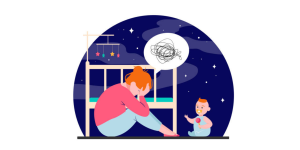
Women’s Day: The Quiet Difficulties That Men and Women Go Through
Come March 8th and the focus and attention is on women. They’ve had their share of struggles in the past to get an equal footing

Come March 8th and the focus and attention is on women. They’ve had their share of struggles in the past to get an equal footing

Revisiting the concept of love Over the years, the concept of soulmates has been smeared and airbrushed into unrealistic levels of love and companionship. Many

Origins of Mindfulness: Religion, Philosophy, or Psychology? Mindfulness is seen to have its roots in ancient Eastern, primarily Buddhist, traditions. However, there are enough references in

Many of us encounter moments in life where forgiveness feels impossible. We might hold onto contempt or resentment towards someone, struggling to understand their actions

We turned 11 years old on the 26th of December! This time, we thought of sharing our one most important learning about mental health with

The arrival of your baby is no less than a joyous moment. The wait is finally over and you look forward to the next chapter

Often just like any other skill, once people start meditating they try to master meditation. They want to excel at it. They imagine themselves becoming quiet

It’s been a year since the lockdown was first imposed when the unknown and rather scary COVID-19 virus affected all our lives. It not only

Treat Yourself to Self-love Today and Everyday Love, romance, dating & relationships are some of the many buzzwords as we approach the month of February

Historically, a pandemic seems to have occurred once in a 100 years, roughly. That means, for most of us alive today, this is a completely

We specialize in combining psychotherapy with deep wellness practices like mindfulness and meditation and creating a customized mental health plan for individuals and organisations.
We specialize in combining psychotherapy with deep wellness practices like mindfulness and meditation and creating a customized mental health plan for individuals and organisations.

A young woman from another country moved with her family to live for one year in a town near the monastery. When, in the course of the year she discovered the monastery, she would periodically visit to have discussions with the Abbess. The Abbess introduced her to meditation, which became very meaningful for the young woman.
When the family’s year-long stay was drawing to an end, the young woman asked the Abbess, “In my country there is no Buddhism and no one has even heard about meditation. How can I continue to learn and deepen the practice you have started me on?”
The Abbess said, “When you return home ask far and wide for who, among the wise people, is recognized as having the greatest ability to listen. Ask that person to instruct you in the art of listening. What you learn about listening from such a person will teach you how to further your meditation practice.
― Gil Fronsdal, A Monastery Within: Tales from the Buddhist Path